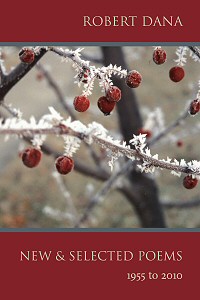 In December 2002, a justice of the Pennsylvania Supreme Court was castigated by his colleagues for delivering a legal opinion in quatrains.*
In December 2002, a justice of the Pennsylvania Supreme Court was castigated by his colleagues for delivering a legal opinion in quatrains.*
The case involved a woman who sought damages from her estranged, much older fiancé because he had lied to her about the nature of her engagement ring (not to mention its value). The majority of the court denied her claim, declaring that she, given the difference in their ages, had relied foolishly on his assurances.
But the poetic justice dissented. And thus sangeth:
A groom must expect matrimonial pandemonium
When his spouse finds he’s given her cubic zirconium.
Given their history and Pygmalion relation
I find her reliance was with justification.
One of the justice’s colleagues observed that “every jurist has the right to express him or herself in a manner the jurist deems appropriate,” but he was concerned about “the perception that litigants and the public at large might form when an opinion of the court is reduced to rhyme.”
Reduced to rhyme.
Perhaps the offending justice is merely a bad poet (though he defended his work, accurately, I think, by declaring: “You have an obligation to be right, but you have no obligation to be dull.”)
His critics, however, seem to be suggesting that the musical properties of verse are insufficiently serious for the task at hand; and that the characteristic virtue of poetry—to condense and transmute whatever it wishes into memorable, indestructible language—somehow harms the facts, stripping them of the gravitas appropriate, in this instance, to an instrument of law.
Yet there is a venerable legacy of serious nonfiction in verse. For instance, Lucretius in his treatise On the Nature of Things, from the first century B.C., presents in hexameters a full-scale exposition of the Greek Philosopher Epicurus and the atomic theory of Democritus. There is also Ovid’s satirical but no less serious handbook of seduction, The Art of Love.
So maybe poetry, or even merely verse, is not the problem here. Maybe the justice’s quatrains—his creative nonfiction, if you will—are unsuitably creative because they employ the wrong poetic techniques. If he had written his dissent in a less galloping meter or even in verse libre, if he had chosen fewer polysyllabic rhymes, or had used slant rhymes, or had dispensed with rhyme altogether, perhaps his colleagues, and the guffawing public they imagine, would not think his verse a diminishment.
Poetry, in its official get-up, is a matter of lines and line breaks, of course, and the interplay of these with sentences draped down the page, through the stanzas, across the pauses. It’s a spectacular confinement, and at its best, a delicious, necessary unsettling of the language.
But we also know that poetry appears in prose, as prose, perhaps as often as it appears in verse, as verse. It’s something other than just lines. So we might assert, for the sake of argument, that verse is to poetry as nonfiction is to creative nonfiction.
Nonfiction prides itself on trafficking in facts. But many poets assert that poems should be factually accurate, even when fictive. So what happens to the status of a fact once it is introduced into a poem? Is there such a thing as a poetic fact? If there is, can it be introduced into nonfiction? How is its status changed by doing so? And how does it alter the status of nonfiction?
Poetic writing consorts with a lyric consciousness, of course, and with the metaphoric—saying one thing by saying another, saying one thing in terms of another but in a more controlled and sharpened way than the metaphoric slip-slop of ordinary speech. A poetic fact—not a fact made poetic—embodies more than one kind of perception. It registers more than one kind of measurement. And it inspires in us a devoted restlessness among those perceptions and measurements, because it also welcomes the possibility of discovery at its edges. It presents—and verges on presenting something more.
Let me give just one example of a poetic fact, though they abound, of course—a line from “Chimes” by the wonderful poet Robert Dana:
Every day I live I live forever.
The statement is true, undeniably factual in several ways but not like My heart beats sixty times a minute now.
Both lines might be verse, since they both scan, but only the first is poetic, or poetry.
We might wonder how, then, a poet would rewrite the versifying justice’s opinion in order to include poetic fact and whether the law would still be the law if that were to happen. We nod yes when Ezra Pound says poetry is news that stays news. But if the newspaper were poetry, we certainly wouldn’t need a daily edition. (And can you imagine the 11 o’clock news as a poetry reading?)
***
Consider now Norman Maclean’s masterpiece Young Men and Fire. It is a book of nonfiction fact, relating the story of the death of a dozen smokejumpers—and the unlikely survival of three others—in a forest fire blow-up at Mann Gulch, Montana, in 1949. Maclean meticulously replays, rethinks, re-imagines and researches the last thirty minutes of the doomed men’s lives—setting this quest for comprehension against the backdrop of what was known about fire at the time of the disaster and what has been learned in the 38 years afterward. The book brims with historical documentation and scientific data about fire fighting, about burn rates and the effects of wind; it contains maps and photographs, diagrams, transcripts and mathematical equations; and it also draws on his and others’ intimate knowledge of the local landscape, gleaned from lifetimes spent in the Montana woods.
As he writes: “In a modern tragedy you have to look out for the little details rather than big flaws.”
The word “tragedy” should cue us here. Maclean is also drawing on a lifetime of teaching Shakespeare and the Romantic poets, and this is where the poetry comes in. His book is haunted by the search for compassion and understanding about the earth and our place on it. While acting as a factual detective, Maclean is also confronting the problem of identity, which, even as he faces old age and his own mortality, remains unsolved for him—unsolvable for us all.
It is probably not surprising, then, that the book was left unfinished at his death, though it is, most assuredly, complete.
Maclean’s task lay beyond the power of nonfiction facts alone, so he turned to poetic facts, of which the book contains many. Consider, for instance, this passage from the concluding pages, which illustrates how he extends nonfiction fact with poetic fact. About the doomed men running up the steep mountainside from the fire that will consume them, he writes:
The evidence, then, is that at the very end beyond thought and beyond fear and beyond even self-compassion and divine bewilderment there remains some firm intention to continue doing forever and ever what we last hoped to do on earth. By this final act they had come about as close as body and spirit can to establishing a unity of themselves with earth, fire, and perhaps the sky.
This is as far as we are able to accompany them. When the fire struck their bodies, it blew their watches away. The two hands of a recovered watch had melted together at about four minutes to six. For them, that may be taken as the end of time.
If this were not enough, a few sentences later, Maclean writes, in what is the concluding passage of the book:
I, an old man, have written this fire report. Among other things, it was important to me, as an exercise for old age, to enlarge my knowledge and spirit so I could accompany young men whose lives I might have lived on their way to death. I have climbed where they climbed, and in my time I have fought fire and inquired into its nature. In addition, I have lived to get a better understanding of myself and those close to me, many of them now dead. Perhaps it is not odd, at the end of this tragedy where nothing much was left of the elite who came from the sky but courage struggling for oxygen, that I have often found myself thinking of my wife on her brave and lonely way to death.
It is a thematic coda, of course, but at the very end of it something wholly unexpected flares up. Maclean has mentioned his wife only once before, briefly, telling us of her death from lung cancer, and that there is a valley near Mann Gulch named for her. (Another place where fire can make its strange appearance.)
These few details become supreme poetic facts because they allow the nonfiction facts about the nature of fire—and the facts about the smokejumpers’ deaths, the strange solitude of their deaths—to also stand metaphorically for the obscure solitude of Maclean’s grief at his wife’s lonely death. These poetic facts revise our understanding of the book by suddenly multiplying the dimensions of its assumed subject. The nonfiction book of nonfiction facts is called Young Men and Fire. But the poem it also becomes by virtue of that final passage could be called Old Man and Ashes.
Thus, we might assert that creative nonfiction—if we can now think of it as a form of poetry—is the most impure, and thus capacious, of poetic forms because it allows the broadest range of rhythms and “content.” It honors the nonfiction fact, reveres and seeks the clarity of definition that nonfiction fact aspires to, but, like Maclean’s fire, it knows and submits to the earthly reality that, in a moment, a fact of that sort can become quite something else.
NOTE
* “Justices Call on Bench’s Bard to Limit His Lyricism:” The New York Times, December 15, 2002, Adam Liptak
